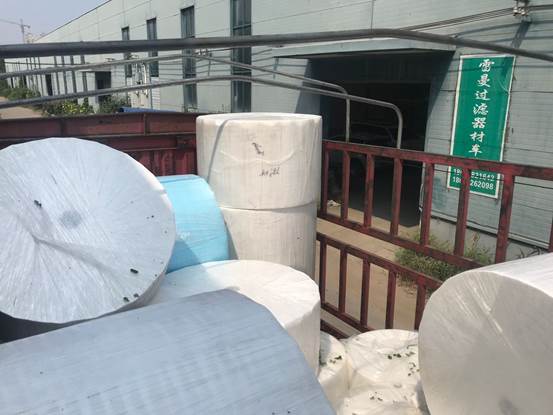Oct . 11, 2024 12:36 Back to list
Toyota Air Filter Manufacturing Process and Product Overview
The Importance of Air Filter Production Lines in Toyota's Manufacturing
Air quality is a critical aspect of vehicle performance, directly affecting engine efficiency and overall vehicle longevity. In this context, the production of air filters becomes a significant focus within automotive manufacturing. Toyota, one of the world's leading automobile manufacturers, prioritizes high-quality air filter production lines that ensure optimal filtration for their vehicles. This article explores the key elements of Toyota's air filter production process, the benefits of these filters, and their impact on the automotive industry.
Understanding Air Filters
Air filters serve a vital function in the automotive ecosystem. They prevent dirt, debris, and other contaminants from entering the engine, helping to maintain its performance and efficiency. A clean air supply is essential for the proper combustion of fuel and air, which ultimately leads to improved engine performance, reduced emissions, and enhanced fuel efficiency.
In Toyota vehicles, air filters are meticulously designed to meet stringent performance standards. Toyota's commitment to quality ensures that every air filter produced not only adheres to the highest industry norms but also significantly contributes to the vehicle's overall performance and reliability.
The Production Process
The production line for Toyota's air filters incorporates advanced manufacturing techniques and high-quality materials. The process begins with the selection of superior-grade filter media, which is crucial for effective filtration. Toyota uses synthetic materials that provide enhanced dirt-holding capacity and longer service life compared to traditional paper filters.
Once the materials are selected, the production line employs automated machinery that streamlines the manufacturing process. This automation allows for precise cuts, formations, and assembly, resulting in air filters that fit seamlessly into Toyota vehicles. The use of robotics in the production line enhances efficiency and reduces the likelihood of human error, ensuring that every filter produced meets Toyota’s rigorous quality standards.
Quality control plays a fundamental role in Toyota’s production approach. Each air filter undergoes thorough testing to assess its performance under various conditions. This includes tests for airflow resistance, dirt capacity, and overall structural integrity. By investing in comprehensive quality assurance measures, Toyota guarantees that each air filter will perform effectively throughout its intended lifespan.
toyota air filter production line products

Environmental Considerations
As a leader in environmentally sustainable practices, Toyota integrates eco-friendly initiatives throughout its production process. The materials used in air filter production are often recyclable, minimizing waste and reducing the environmental impact. Furthermore, Toyota employs energy-efficient technologies within its manufacturing facilities, aiming to reduce its carbon footprint.
This commitment to sustainability is an extension of Toyota's broader Environmental Challenge 2050 initiative, which seeks to minimize the environmental impact of its vehicles across their entire lifecycle. By optimizing air filter production, Toyota contributes to cleaner emissions and improved air quality, aligning with global efforts to combat climate change.
Benefits of High-Quality Air Filters
Investing in high-quality air filters yields numerous benefits for vehicle owners. First and foremost, clean air filters enhance engine performance by ensuring a steady flow of clean air, which optimizes combustion efficiency. This directly translates to improved fuel economy, saving drivers money at the pump.
Moreover, high-quality air filters contribute to the longevity of the engine. By preventing the ingress of harmful particles, they reduce wear and tear, extending the engine's life and minimizing the need for costly repairs. This reliability is a hallmark of Toyota vehicles, fostering trust and satisfaction among customers.
Additionally, the use of advanced air filters can lead to reduced emissions. Clean engines run more efficiently, producing fewer harmful pollutants. As global regulations on emissions become increasingly stringent, Toyota's high-quality air filters help its vehicles stay compliant while supporting a cleaner environment.
Conclusion
Toyotas' air filter production lines exemplify the company's commitment to quality, performance, and sustainability. Through advanced manufacturing techniques and rigorous testing, Toyota ensures that its vehicles are equipped with high-quality air filters that enhance engine efficiency and prolong vehicle life. As the automotive industry continues to evolve, Toyota's focus on innovative production processes and environmental responsibility positions it as a leader in the market, contributing not only to the automotive experience but also to a sustainable future.
-
High-Efficiency Paper Pleating Machine for Filters Trusted Filter Paper Pleating Machine Company
NewsJul.07,2025
-
High-Performance Oil Filter for Cadillac ATS – Reliable Engine Protection Solutions
NewsJul.07,2025
-
High Quality PU Glue for Filters – Reliable Filter Glue Supplier & Exporter Get PU Glue Quotes Now
NewsJul.07,2025
-
China PLJL-4 Seal Leakage Tester for Spin-On Filter - High-Precision Multi-Station Testing Solutions
NewsJul.06,2025
-
CE Certification Auto/Truck Filter Paper Supplier – Premium Filtration Solutions for Vehicles
NewsJul.06,2025
-
OEM PLGY-500 HDAF Mesh-Ends Hooking and Pressing Machine - High Efficiency, Precision, Reliable Performance
NewsJul.06,2025
